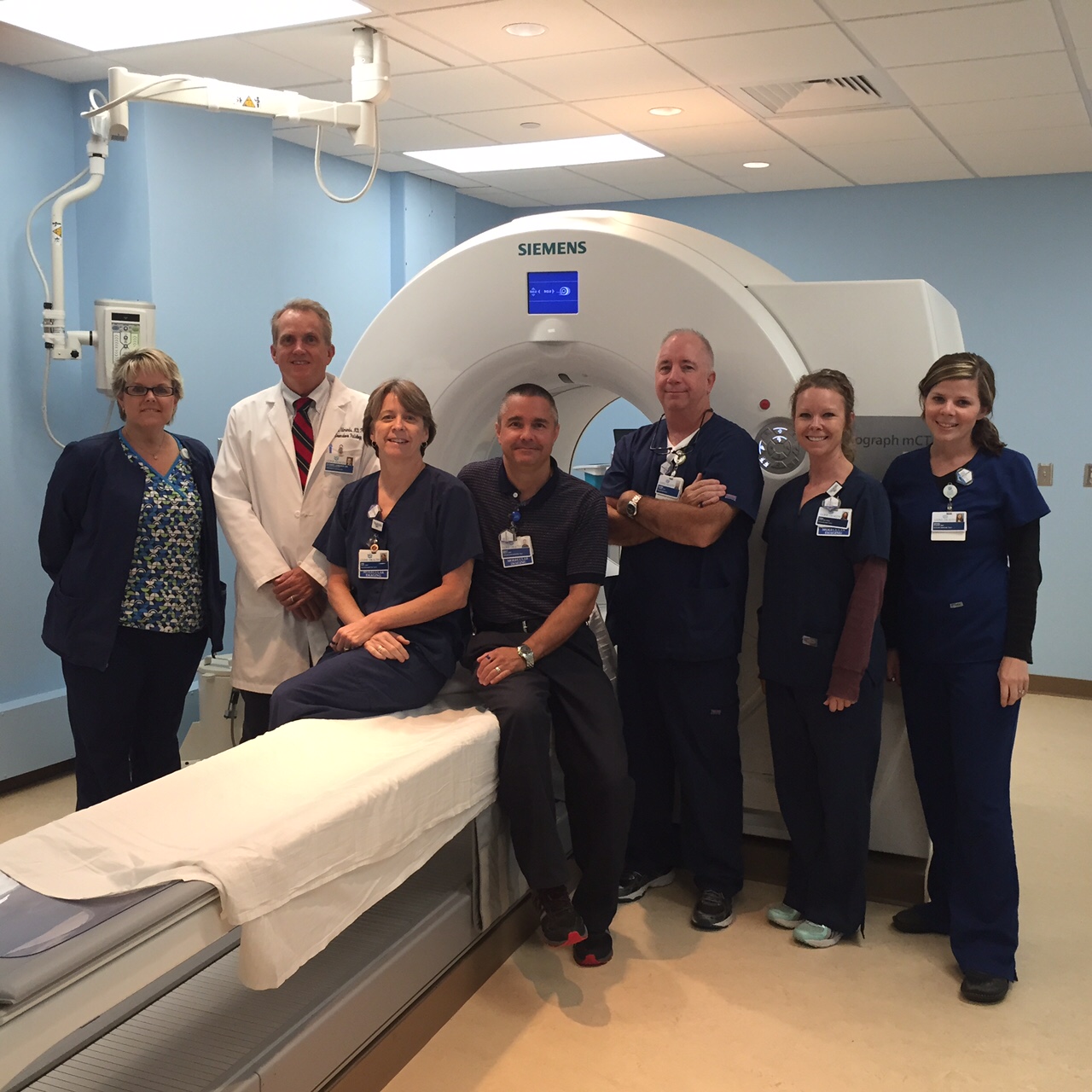 Nuclear medicine
Nuclear medicine
is a specialty that uses safe, painless and cost-effective techniques to take images of the body and treat disease. Nuclear medicine gathers medical information that would otherwise be unavailable, require surgery or may necessitate more expensive diagnostic tests. Nuclear medicine imaging procedures often can identify abnormalities very early in the progress of a disease – long before many medical problems are apparent with other diagnostic tests.
Nuclear medicine uses very small amounts of radioactive materials, called radiopharmaceuticals, to diagnose and to treat disease. In imaging, the radiopharmaceuticals are detected by special types of cameras that work with computers to provide very precise pictures about the area of the body being imaged. In treatment, the radiopharmaceuticals go directly to the organ being treated. The amount of radiation in a typical nuclear imaging procedure is comparable with that received during a diagnostic X-ray, and the amount received in a typical treatment procedure is kept within safe limits.
There are nearly 100 different nuclear medicine imaging procedures available. Every major organ system is imaged by nuclear medicine.
Nuclear medicine radiologists,
also called nuclear radiologists, are physicians who use radioactive materials, called radiopharmaceuticals, to diagnose and treat disease. They employ such techniques as scintigraphy, which uses radiopharmaceuticals to produce images of the body's organs or to visualize certain diseases. These radioactive materials are typically injected into a patient's vein, but may also be inhaled or ingested by the patient.
Nuclear medicine radiologists also utilize radiopharmaceuticals to treat hyperthyroidism, thyroid cancer, solid tumors or painful bone metastases. After graduating from medical school, nuclear medicine radiologists must complete a lengthy four-year residency in diagnostic radiology and be trained in a wide variety of imaging techniques, including the diagnostic and therapeutic use of radioactive pharmaceuticals. Nuclear radiologists are further required to have one or more years of additional nuclear medicine training. All educational programs must be certified by the Accreditation Council for Graduate Medical Education (ACGME).